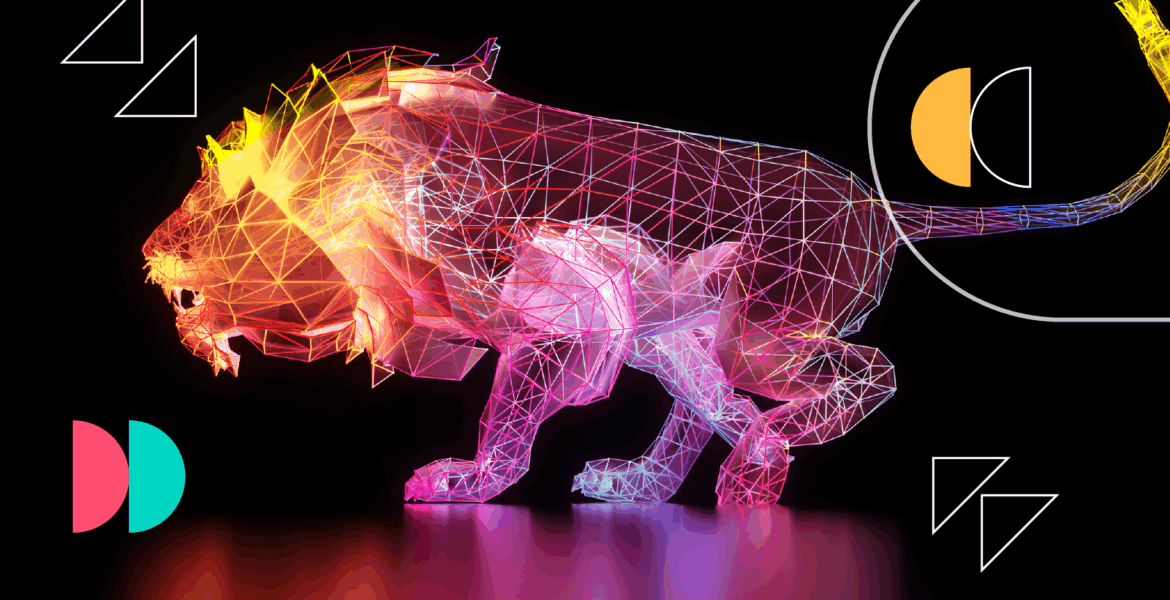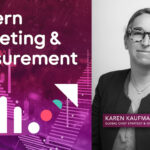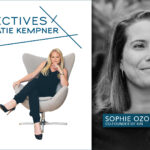By R. Larsson, Advertising Week
As the industry’s biggest stage prepares to spotlight the best in global creativity, Cannes Lions 2025 promises a showcase of campaigns that don’t just sell – they stand for something. From emotionally resonant storytelling to AI-powered one-upmanship, this year’s frontrunners are rewriting the rules of engagement. Insight-led, culturally tuned, and unafraid to provoke, these campaigns reflect a broader shift: brands are no longer just chasing attention; they’re earning relevance.
We asked leading voices from across the creative landscape what they’ll be watching for on the Croisette. The result? A spotlight on work that breaks taboos, builds bridges, and brings bold experiences to life. Here are the campaigns and trends they believe could take home Lions this year.
Sharon Jiggins, Managing Partner at 23red, part of Capgemini Invent
What stood out to me about this campaign was how insightfully it challenged the ingrained expectation that children should always be happy. By wiping the smile from its iconic Happy Meal boxes, McDonald’s used one of its most recognisable brand assets to open up a national conversation about children’s mental health. Grounded in behavioural insight and evidence, the campaign reframed emotional expression as something to be encouraged rather than masked. The addition of stickers as a conversation starter was a simple yet powerful tool -creating a shared, age-appropriate way for parents and children to explore feelings together.
Samsung – The Worst Children’s Library
This campaign powerfully demonstrated how brands can take a clear stand on digital safety while staying commercially relevant. Samsung transformed the familiar symbol of a children’s library into a confronting installation: a collection of over 1,000 disturbing, fake book titles, all based on real search data to expose the dark and dangerous content children are regularly exposed to online. Titles like “100 Ways to Self-Harm” and “Cruel Ways to Kill Animals” made the threat visceral and impossible to ignore. It was a stark, emotional way to highlight an urgent issue, and crucially, Samsung used the moment to showcase its own tools and technology designed to protect young users – demonstrating that purpose-led work can also promote product relevance and innovation. A brilliant example of brand responsibility and business strategy working hand in hand.
Bodyform – Never Just a Period
Bold, empathetic, and brilliantly executed, Bodyform’s Never Just a Period campaign is a standout example of how brands can challenge taboos while connecting deeply with audiences. Through powerful storytelling, it confronts the many complex realities behind menstruation, pain, stigma, misunderstanding and does so with a rare mix of raw honesty, emotional depth, and a touch of humour. The campaign doesn’t just seek attention; it earns trust, sparks conversation, and dismantles long-held myths. Crucially, it also reinforces Bodyform’s long-term brand platform and commercial positioning in a highly competitive category. At Cannes, I’ll be watching for more work like this – campaigns that celebrate the full spectrum of women’s experiences while driving cultural and commercial impact.
Dave Stein, Senior Partner, Lippincott
There is a theme for the ads that I personally love, and think will perform well at Cannes: unity. I think the brands that can bridge divides and focus on common ground are the brands that will win in the future. People’s appetite for division is limited, and if you appeal to the best versions of consumers—the versions that recognize that differences are strengths and that you, “don’t need to be friends with someone to wave hello” – you’ll rise to become the Go-to brands of the future. And, so, with that in mind, a few that I think have real potential at Cannes are:
Jeep Owner’s Manual” with Harrison Ford. A lot of people were turned off by it, but I really admired it. I respected this ad because it was built from insight that some things can find their way to the middle, and that thing for Jeep is freedom. It rang authentic for me, because I do associate freedom with Jeep—freedom to adventure, to explore, to choose. There might not be any other auto brand out there that can more credibly own the attribute of “freedom (of choice)” than Jeep. You combine that with the execution of a true-blue Hollywood director and an iconic superstar, and you have one very memorable and powerful ad.
Two more that I loved because of the raw emotion they conjured in my brain around unity:
Rocket Mortgage’s “Take Me Home” ad. It was a beautifully shot ‘story’ (hard to even call it an ad) of the American Dream. “Own the Dream” is a masterful essence for the brand and the original footage shot and shown here pretty flawlessly communicates what we all feel about home ownership. Everyone who has gotten to that milestone feels those raw emotions on display on the spot and it creates this connection with Rocket that is hard to replicate. I think the “get everyone to sing in the stadium” bit at the end fell flat because people in the stands just didn’t understand what was going on, but this kind of risk-taking should be celebrated. We need to see more of it.
Guinness’s “Lovely Day” was another visceral piece of storytelling that, without any dialogue, told a story of togetherness that is not only highly relevant for today’s divided times, but also just baked in absolute brand authenticity and the insight that humans ultimately just care about each other. What a lovely way to depict the character of the brand.
Bhavesh Unadkat, VP of brand, marketing and content services, frog
Burger King versus McDonald’s: Battle of AI ads
I’m excited to see the battle of the AI ads this year! The Burger King vs McDonald’s campaign is a great example of how brands can intelligently leverage AI to (hopefully) drive independent insights and validate their unique selling point – with McDonald’s focusing on their ‘iconic’ status, while Burger King emphasized the size of the ‘Whopper’. Each brand was able to reinforce their strategic position, whilst engaging consumers in an innovative light-hearted way.
Cadbury’s: Made to share
The Cadbury’s ‘Made to Share’ campaign raised the bar for marketing in 2025. By tapping into universal themes like generosity and appreciation of small, everyday acts of kindness – like cooking a meal – they were able to emotionally resonate with consumers in a unique way, whilst reinforcing their identity centred around the feeling of togetherness. Highly deserving of industry recognition!
Togethxr – Everyone Watches Women’s Sports
This campaign is an inspiring example of how impactful messaging can be used to challenge stereotypes, like ‘no one watches women’s sports’. I think it’s fantastic that the company have so successfully shed light on such an important topic. The success of the campaign highlights the power of purpose-driven marketing and is a brilliant win for women in sport.
Adam Charles, Chief Growth Officer, Sparks
This year’s experiential campaigns are redefining the playbook for brand engagement – bold, immersive and built for buzz.
Amazon’s A’Maison in Cannes turned a parking lot into a multi-sensory cultural village, blending fashion, tech and art in a high-style playground. It wasn’t just a space, it was a statement – Amazon as a lifestyle, not just a logistics brand.
Meta’s Reels Cinema, crafted by Es Devlin, blurred the line between tech and art. With a bespoke vertical film and an AI-infused design, it captured the storytelling potential of Reels in a way that felt genuinely elevated — not just branded content, but branded culture.
Then there was Pop-Tarts’ Edible Mascot moment – yes, they literally toasted their mascot and served it on the field post-game. Absurd? Absolutely. But also unforgettable, hilarious and perfectly on-brand for a Gen Z audience that lives for the surreal.
These aren’t just ads. They’re physical, social, and shareable experiences – the kind Cannes Lions loves to reward. Expect to see them on the shortlists.











